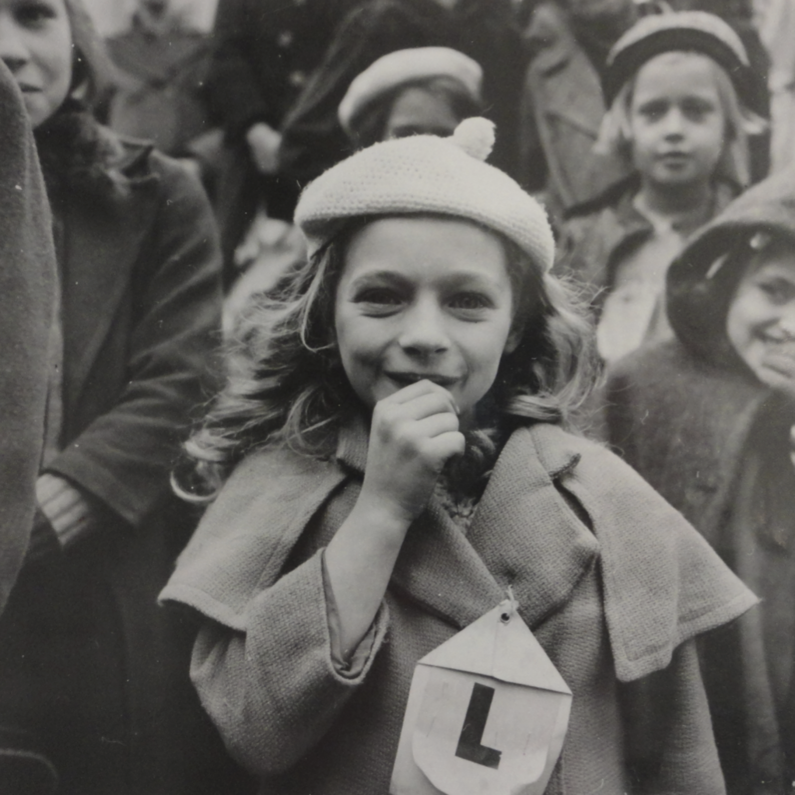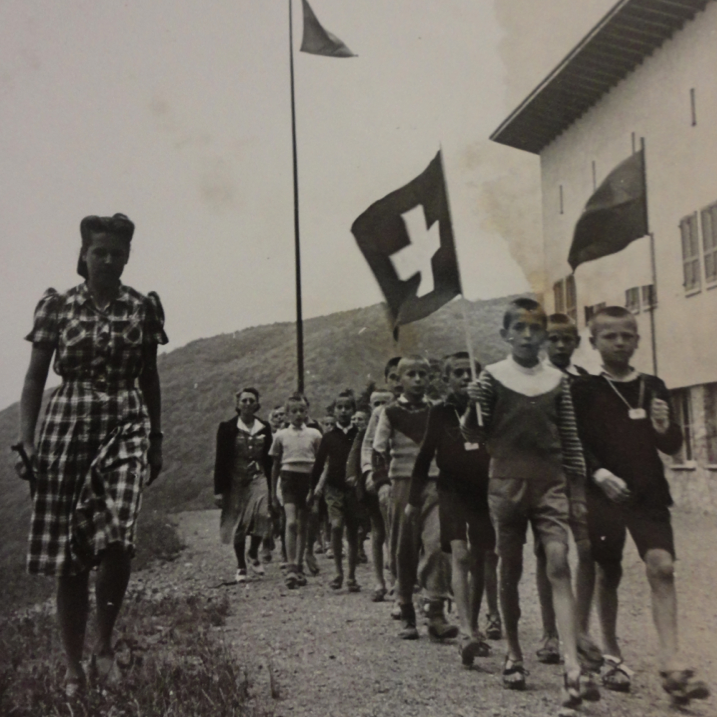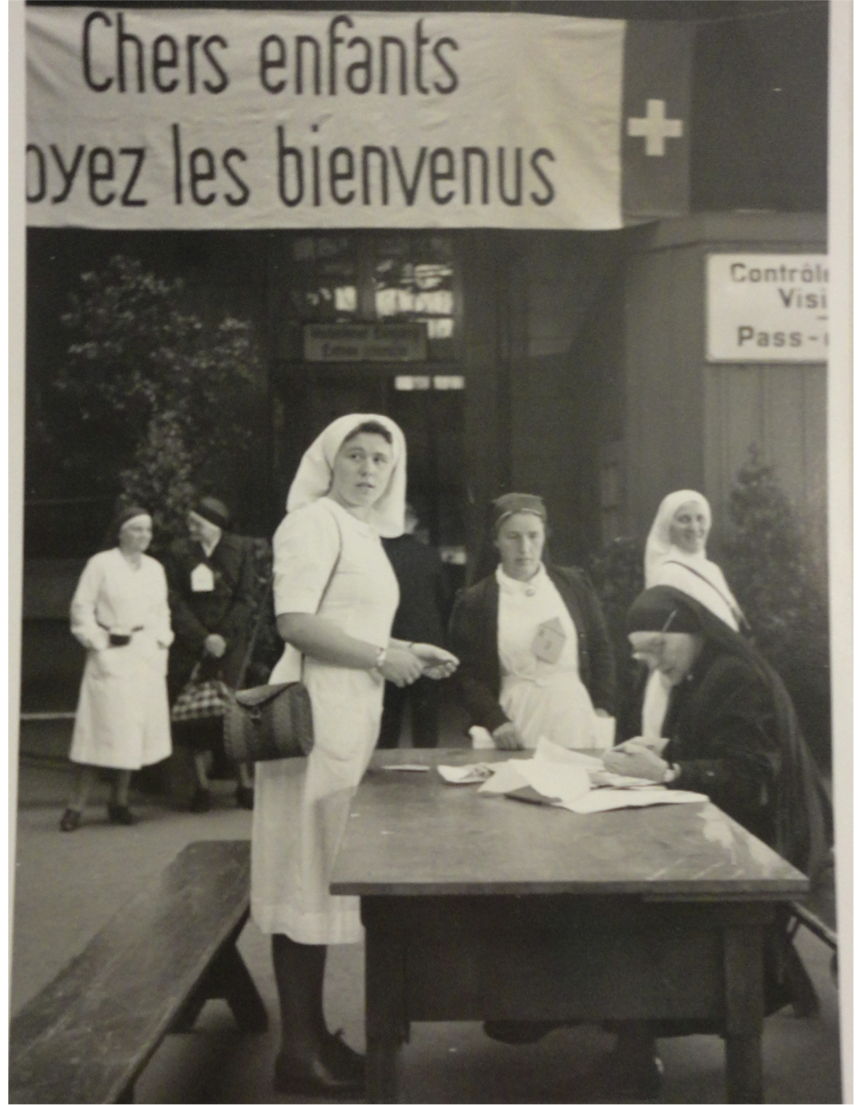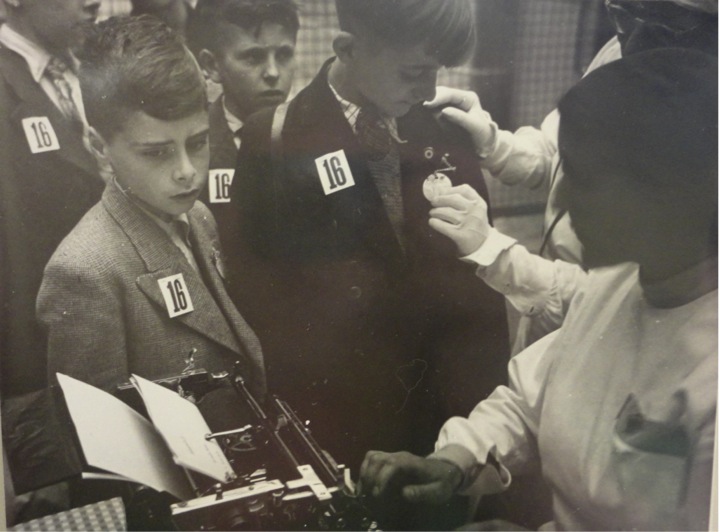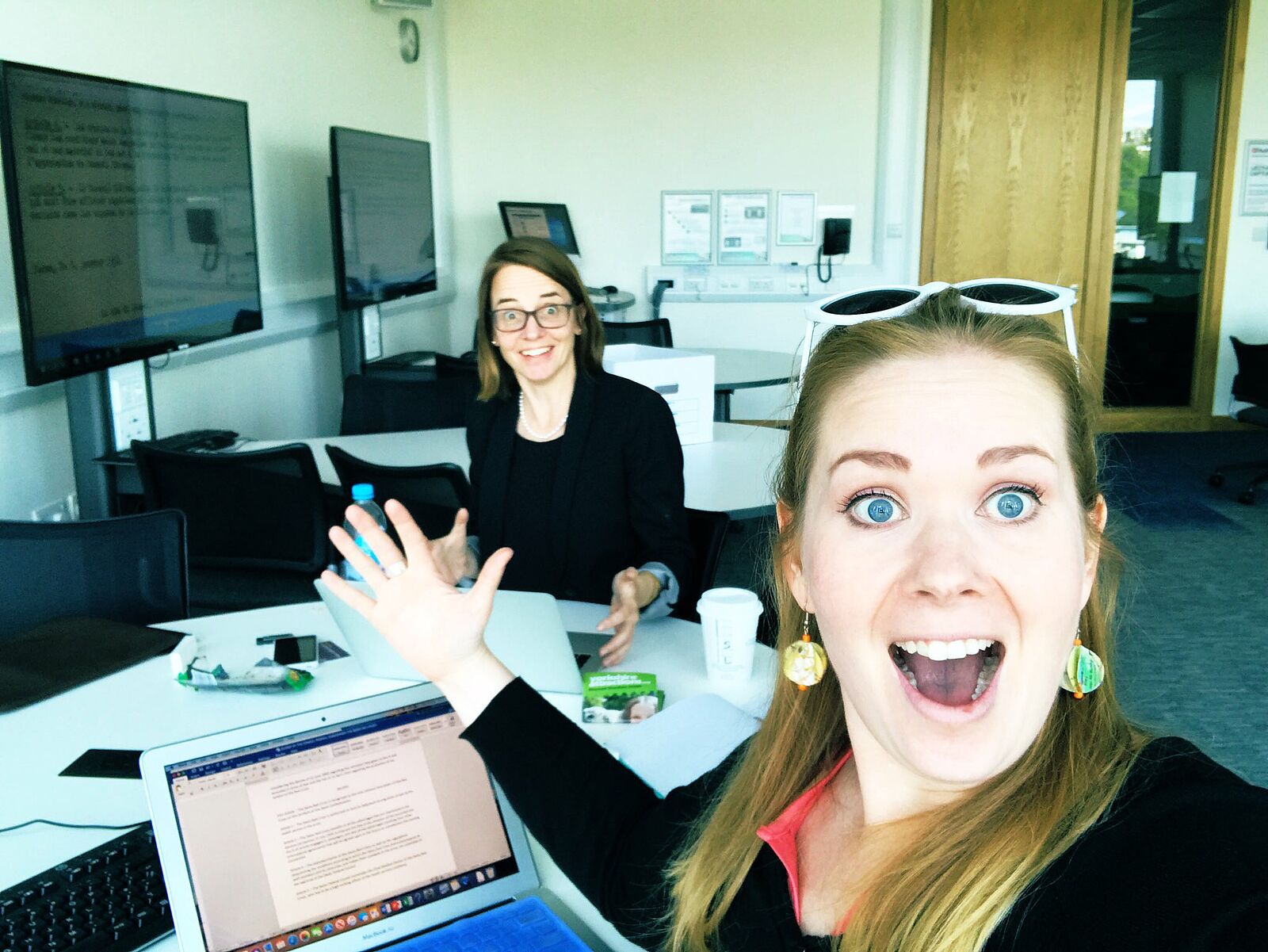In February 2020, coinvestigators Dr Chelsea Sambells and Dr Elisabeth Möckli received a grant from the Swiss National Science Foundation SPARK Fund for their twelve-month project Humanitarian Action and Translation. Hosted by the Faculty of Translation and Interpreting at the University of Geneva, this project investigates the strategic connection between translation and humanitarian action by exploring the language practices and policies developed by Swiss agencies within a major child evacuation to Switzerland during the Second World War.
From 1940 to 1942, a coalition of Swiss charities evacuated thousands of children from Nazi-occupied France and Belgium to Switzerland for temporary periods. Due to the increasing scope and popularity of the evacuations, the Swiss Red Cross (SRC) and Swiss government joined the efforts in January 1942. This new ‘Kinderhilfe’ organisation successfully mobilised the established SRC infrastructure to become increasingly efficient and effective. However, the Swiss government’s serious concerns about maintaining neutrality in light of this major humanitarian initiative prompted it to intervene. From 1942 onwards, the SRC had to comply with a number of governmental directives and decisions. It is during this precise moment that the SRC’s and Swiss administration’s translation and multilingual practices became intertwined; the ‘non-governmental’ (NGOs) and governmental translation practices and policies of these two institutions were brought together and shaped, driven by various wartime political and economic considerations.
The goal of this project is to use this microhistory as an avenue into investigating the critical connection between translation policies and humanitarian action within modern warfare. By combining the emerging field of Translation Studies and historical methods of archival research into a rigorous interdisciplinary study, this project will, for the first time, provide an innovative lens into a) the interplay of governmental and non-governmental institutional translation within targeted humanitarian action, b) Swiss translation policies and their affect upon the practical realities of mass child evacuations in war, and, c) the role Swiss neutrality played in determining language and translation policies in the Second World War.
The coinvestigators are interdisciplinary scholars. Dr Chelsea Sambells (University of Huddersfield) is a historian of the Second World War and Holocaust with expertise in refugees, children’s history and the history of humanitarianism. Dr Elisabeth Möckli (University of Fribourg and Geneva) researches translation history in relation to political discourse including propaganda and mass media, with focus on the Second World War. This interdisciplinary and innovative project will consult five national archives to generate three peer-reviewed articles, a project website and, they hope, an international workshop in Geneva in the summer of 2021.
